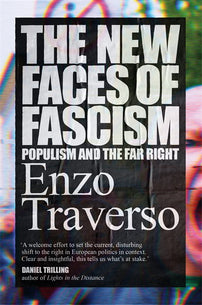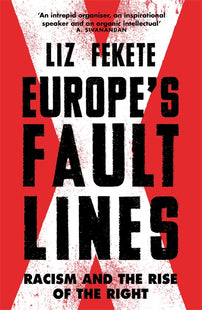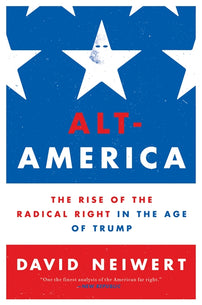Crush the Saboteurs
Since Jeremy Corbyn became leader of the Labour Party, the language of treason has returned to British political discourse - notably so with the recent video footage of soldiers in Afghanistan firing at a picture of Corbyn and Nigel Farage's claims that he would ‘pick up a rifle’ if Brexit was not delivered. In this article, Eleanor Penny analyses what it at stake in this new language of treason and what that means for British politics and society.

These days, treachery is easy. Two years ago, a Daily Mail splash urged the electorate to 'Crush the saboteurs' by delivering May's Conservative government to a barnstorming victory wiping out Labour - and implicitly, any resistance to the ERG’s attempts to carve up UK industry for parts and flog them off to the highest bidder. A video recently emerged of a group of soldiers using a printout of Jeremy Corbyn’s face for target practise. They weren’t shock-jocks, courting controversy to drive up ad revenues. Just regular British gunslingers, laughing about shooting a politician in the face, posting it on social media as if it were the most ordinary thing in the world. In a way they were right.
Repolishing his fascist credentials, Nigel Farage said that he would be forced to ‘pick up a rifle’ if Brexit was not delivered. On launching his Brexit Party, he swore to ‘put the fear of god into our MPs’. Tommy Robinson headed up a 'Brexit Betrayal' march to coronate himself the champion of the 52% on the brink of being 'sold out' by parliament. It’s been echoed on some strands of the left, who parrot the idea that a soft Brexits that commit us to retaining Freedom of Movement within the borders of the EU would mean betraying the interests of the authentic (read: white) working class.
The Tory party has repeatedly mocked opponents of their hard-ball anti-migrant stance as ‘metropolitan liberal elites’ and ’citizens of nowhere’–dogwhistling about people whose slippery, globalist loyalties cannot be trusted in steering Britannia through the murky waters of the next crucial decades. Critics of Britain’s historical injustices have been accused of selling out their first duties towards the dignity of the nation. According to Spiked, David Lammy’s recent comments comparing people who hang out with white supremacists to, well, white supremacists, showed a 'contempt' for the country. Ed Miliband’s dad was roundly decried as ‘a man who hated Britain’ for briefly whining about the country as a teenager. Corbyn has long been excoriated for being anti-British. The Telegraph takes it further, claiming that Corbyn’s entire platform from his anti-imperialism to his 'welfarism’ is proof that he has “long hated Britain”.
As the referendum campaign reached a dizzy peak of reaction, an openly pro-migrant MP was murdered in the street by a far right terrorist. Later, in court the man gave his name as ‘Death to Traitors, Freedom for Britain’.
When the video of the soldiers emerged, their defenders dismissed the shootings as meaningless, boyish hijinks. The same sweaty legions of tub-thumpers who grow even pinker at the thought of people not wearing poppies on Armistice Day assembled to deny that symbols are meaningful at all, and that the public outcry is nothing more than hypocrisy from soft-___ed liberals who don’t bat an eyelid when people say ‘Eat the Rich’. It effectively denies the basic facts of human understanding: that context matters, that words mean things, that the meaning of violence - symbolic and literal - is immune to context. Either we have to deny that the shooting matters, or say that all its corollaries are equally distasteful; succumbing to a delicate liberal sensibility that privileges ‘politeness’ above meaningful action.
[book-strip index="1" style="buy"]Flattening differences is a strange manoeuvre for people defending the military - an institution reliant on the idea that not all violence is the same. For the military to operate, convenient forms of violence must be dignified with narratives of extraordinary difference otherwise a bullet into the skull of a child in Kabul is the same as a bullet into the skull of a child in Kensington. For the military, for the neo-imperalists of the ERG, for the government hawks in the pockets of arms companies, this is–must be–unthinkable. It’s our responsibility to re-tell the difference; to point out that this comes as an inevitable escalation in the routine hysterias and happy vitriols flung at Corbyn, the chosen establishment whipping boy for all political tendencies which dare question the fundaments of the British State: monarchy, empire, military, a parliament groaning with fusty aristocrats.
As David Wearing has explained, top military figures have long despised the Corbyn project for its internationalism, and for ‘disrespecting the military’ by pointing out some standard facts of history–such as the fact that several notable imperial crimes of the British State from Bloody Sunday to the Amritsar Massacre were carried out by soldiers. He has also face opprobrium for criticising the broader project of empire that has long formed the purpose and bedrock of the British Army, and more broadly speaking, the nation State. As well as for making steps towards more just foreign policy and development practises. In anyone’s book these are only moderate steps towards redress - paltry in comparison to the heft of reparations we really owe to formerly colonised people, and diluted by a shaky stance on migration. But enough, nonetheless, to enrage those for whom even moderate criticism of these pillars of the state must be expunged. This is the logic of treachery: that whilst small changes and soft-shuffling non-rebellions are tolerable, any challenge to the deep set, and any shift of fundamental power relations, is an existential threat.
Treason is not a crime of democracy. It demands fealty to those with guns, crowns and land, the endless re-spinning of the stories they use to justify their power. And woe betide anyone who mounts even the most moderate of affronts; power cannot, in a deep sense be challenged. It can only be cajoled, placated and ultimately obeyed. The space for change withers as the idea of structural change is wiped from our collective imagination.
This is of course, the point. The language of ‘treason’ implies that there is something to be betrayed; a single, unitary ‘British people’ - not a constituency with meaningful representation, but an imagined community to be bandied around by charlatans who have very little interests in how most people live their lives. It collapses the interests of the ‘British People’ into the interests of the state - as though the heart and soul of popular sovereignty was never serious challenging the government, ever. It conjures up a consensus around the idea that power is unimpeachable. State good, aberrance bad, treason worse. This is, of course, absurd. But such are the grim cartoonish lock-ins reactions of establishment revanchists, panicked in the face of a growing movement for radical change.
[book-strip index="2" style="buy"]Championing the unimpeachable moral standing of the military is key to concocting a nationalist idea of state righteousness. The tooth-gnashing dictum to ‘respect the military’ at all times is a frantic corrective to critiques of the military policies which undergirded British economic policy: the armed plunder of resource-rich countries to fund the industrial revolution, the continued force used to secure access to those resources. As Kojo Koram has noted, “most of British history didn’t happen in Britain”. The same is true of the economy. For cheerleaders of the status quo, even a mild reckoning with this history is intolerable.
If we want to continue to send troops abroad to crush other countries under the stiff boot heels of British economic interests and call it ‘exporting democracy’, if we want to preserve the moral piety of Britannia, centuries of blood must be washed from its hands by the uncanny waters of collective forgetting.
For this, the military must be beyond criticism. The image of the eternally innocent god-loving soldier is used to bless all actions he is commanded to perform with the loving grace of his unthinking decency. The soldier is beyond criticism; his actions are always loving. When he fires into pictures, it's meaningless, boyish japes. His structural commitments to the state and crown are naive, loving, beyond-politics. He is neutral, redeeming–powerful and non-specifically on your side. He is innocent in the way that an animal defending its cubs is innocent. Innocent in the way a child is innocent. Even his trauma is ghoulishly flaunted as the Christ-like wounds redemptive of the common good. This innocence constructs the military’s critics as whining ingrates, sniping at their sacrifices from the leisurely comfort the ‘national security’ soldiers apparently protect. Thus every critic is slandered, every structural critique starved into a personal attack, and the state once again put beyond reproach. Those seeking change are not engaging in the democratic process to hold powerful institutions–they are traitors.
The expunging of key institutions like the military from political critique should clearly worry anyone with a vague commitment to democracy. And it means we miss a still more worrying phenomenon: that the ranks of British soldiery are far from apolitical. And yet there are multiple reports, including from ex-soldiers, that the army is a bastion of burgeoning far-right sympathies.
We shouldn’t pretend that soldiering is a straight march to fascism: far from it. Many soldiers from both world wars were radicalised by direct experience of an imperialist conflict that belied the pomp and circumstance of their promised glory; on returning, they swelled the ranks of the unions. But perhaps we should not be surprised that a section of society trained to unquestioningly obey authority, glorify violence, and conduct politics by violently remaking the world is sympathetic to the far right. Nor should we be surprised that an institution whose members are actively encouraged to glorify their imperial past is a fertile breeding ground for a far-right flogging the myth of British superiority and the urgent need to subjugate ‘foreigners’. Joe Glenton draws a direct line from the imperial underpinnings of the military to its far-right tendencies: “Does this mean the army is now the BNP with berets? No, but in some respects, the UK military – the institution, rather than the people – is itself a far-right organisation. […]What incentive is there, we might ask, to be multiculturalist when so much military identity – for example, the battle honours embroidered on your unit’s colours – stems from the names of Indian or Afghan towns whose mutinous citizens were ravaged, robbed and raped by the “warrior” ancestors you toast at mess evenings?”
To survive and thrive within the British army means metabolising a hefty dose of poisonous imperialism and white supremacy. And the far right reliably courts broader public sympathies by borrowing the mantle that they ‘support the troops’ from the slurs of treacherous critics. It positions themselves as people who can restore the nation's pride in a time of decline, explaining the indignities of economic as part of a broader story of racialised national humiliation. It’s not simple PR exercise, or machiavellian manoeuvring. It's undergirded by a practical attempt to build coalitions which have long proved useful to a resurgent far right: between themselves, the military, and elites ready to sign off on any policy as long as it broadly leaves their class interests intact. It is no coincidence that a roll-call of the world’s most brutal fascist dictators namechecks many military leaders who could summon the public sympathy that comes with ‘defending the nation’ - and had armies at their disposal to make good on their promises. Their administrations staffed by colonial advisors; tools of domestic autocrats were sharpened on the conflicts of former empires: famously, concentration camps were pioneered by the British in the Boer Wars. Thus the violence of the colonies returns home, looking respectable and dignified with its medals polished to a high shine.
The latest grisly parade of grisly demagogues sweeping MainStage global politics are no exception. Notably, Bolsonaro’s deep ties to the Brazilian military have been credited with bolstering his support–building a supporter base, doubling down on his ‘tough-on-crime’ hyper-nationalist machismo, and massaging lingering right-wing sympathies for the country’s former dictatorship. These neo-fascist administrations establish a military ethic of governance, where, as Umberto Eco, puts it "Disagreement is treason." In many ways, the military is the ideal-type template for authoritarian rule: anti-democratic, driven by an ethic of violence, engaged in the eternal creation and re-creation of external ‘enemies’ to justify arming to the teeth the institutions of the ruling class.
These are uncertain times. In such moments, stiff-fisted authority can look appealing. Hard Brexiteers have spun a story of a weak, delinquent state unable or unwilling to protect its citizens from the deadly predilections of ravening migrants or treacherous 'saboteurs' within it. A story of imperial decline and doleful nostalgia to be stemmed only by a ruthless renewal of hard-state institutions: monarchy, military, empire, executive power concentrated in the hands of a glorified few who can channel the will of the British people. Demagogues can paint democracy as an indulgence. Only unquestioned authority can save us, and so questioning authority becomes a selfish, intolerable act of national sabotage.
High Treason was the country's last crime punishable by death. It was only abolished in 1998. It was the counterpart to the defunct offence of 'petty treason': the murder of your legal superior. The murder of a husband by his wife, the murder of a master by their servant. It is a crime that upends power. As reactionary consensus ossifies around an ever more brittle, ever more narrow vision of power, treason becomes ever easier. It would be nice to dismiss this as the usual chorus of bloviating hacks spewing hot air about loyalty to queen and country. But for those traitors among us - people who believe in democratic dissent, people who believe in internationalism, people who aren't addled on the myth of British exceptionalism, people who think military might isn't the–this is beginning to look more and more like a declaration of intent. They say 'crush the saboteurs'. They mean us.
Eleanor Penny is a writer and journalist. She's a senior editor at Novara Media and the online editor of Red Pepper Magazine
[book-strip index="3" style="display"]




